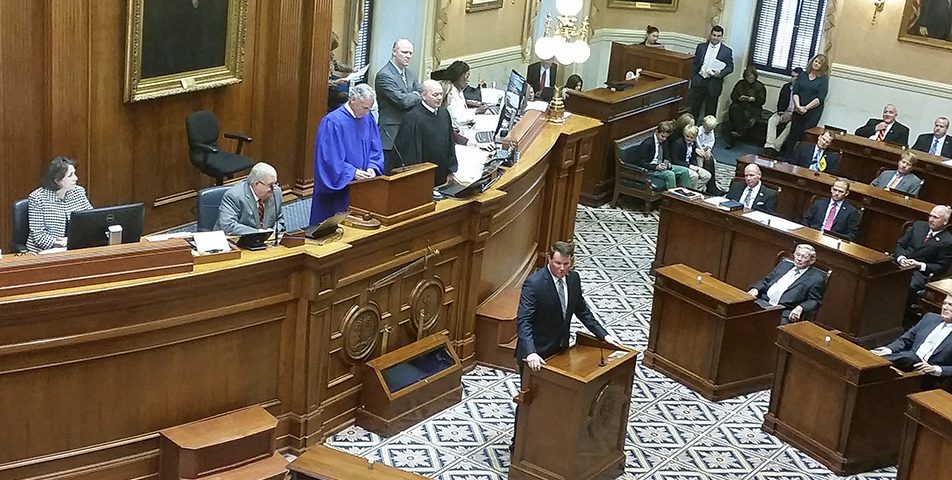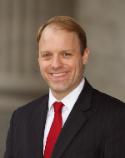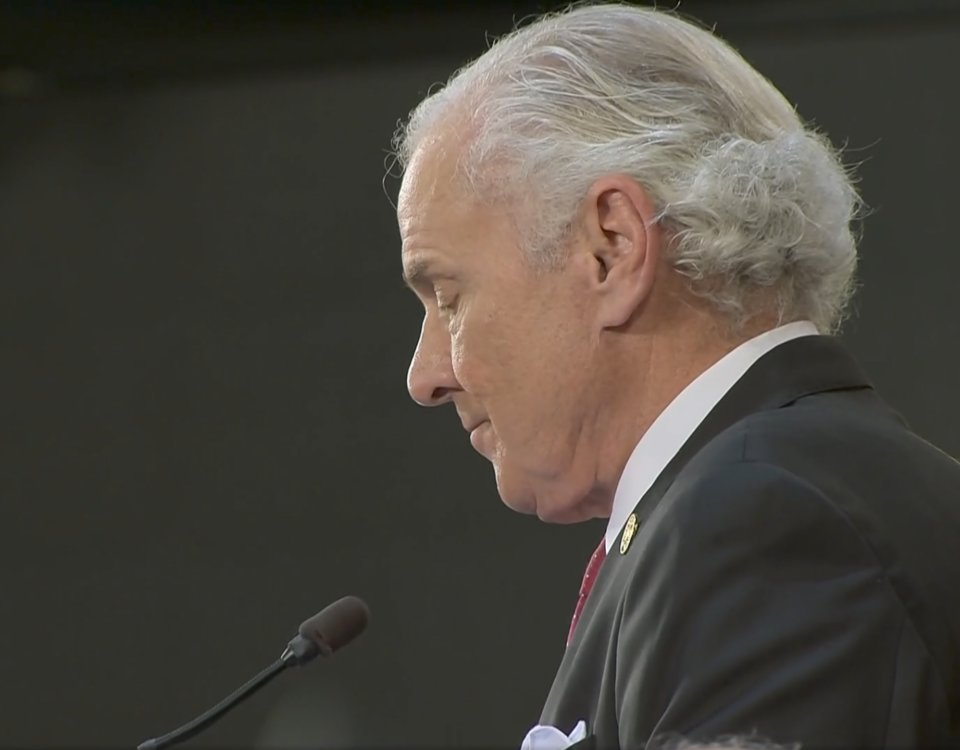
The “Off Season” Still Matters to Your Bottom Line
October 11, 2016Legislature begins work (again) on fixing state retirement system

A joint legislative committee began work today in an effort to head off, in the words of the co-chairman, “the biggest challenge we face this decade.”
The state retirement system faces, officially, a $16.75 billion deficit, but private estimates range as high as $40 billion. South Carolina is not alone in facing such a deficit. Many states are grappling with the twin shocks of more retirees and fewer contributors and investment returns that lag estimates.
“We have a lot of work to do,” said Sen. Kevin Bryant, R-Anderson, the Senate’s co-chairman.
The impact on business could be significant. There are only so many places the General Assembly can go to find the funds needed, and most agree that any future increase in funding will have to come from state and local governments in the form of higher employer contributions, catch-up contributions, or diversions of general fund revenues. That would result in cuts to local and state services or higher taxes – barring a major increase in the rates of investment return or state revenues.
“We’re looking at a number that is bigger than the roads,” said committee member Rep. Mike Anthony, D-Union. “There’s enough blame for everybody. My hope for this committee is that we stop the bleeding and get us back on track.”
The Department of Transportation has estimated it needs $40 billion to get the state’s roads to “good” condition by 2030.
Gov. Nikki Haley said in the spring that any fix to the pension system would “hurt.” The Greenville Chamber and the Upstate Chamber Coalition are committed to engaging in this process to minimize any negative impact to our state’s business community.
On the first day, the committee took testimony from the Public Employee Benefits Administration, the state’s actuaries, and the state’s investment commission. Questions from the legislators included asking how many quasi-government entities are in the system, whether the investment return assumptions are realistic, and whether the plan may actually run out of money.
Peggy Boykin, director of the South Carolina Retirement System said that the system is paying out $3 billion a year and only taking in $2 billion – before considering investment returns, which were flat last year. The system has about $27 billion in assets.
“This isn’t going to last if there aren’t major changes in the plan,” Jeff Bradley, R-Hilton Head, who is a financial advisor.
The state’s actuaries told the committee that if there was no unfunded liability – if the state had properly funded the system in the past – it would take 10 percent of employee pay to fund the system. The current amount paid by the state and employee contributions are double that, and the deficit is still growing.
South Carolina has five different retirement plans that are their own legal entities:
- The State Retirement System covers all state agencies, higher education, school systems, and all local governments and subdivisions. There are 187,000 contributors and 134,000 beneficiaries. About 10 percent of the state is paying into, or receiving benefits from, this system.
- The police officer retirement system covers state police, corrections, the Department of Juvenile Justice, local sheriffs, and local police departments.
- A third system covers the General Assembly. This system was closed in 2012.
- A fourth system covers judges, solicitors, the Administrative Law Court, and public defenders.
- The final system covers the National Guard.
The committee limited its initial scope of the committee to the main state retirement system and the police officer retirement system. The other systems are considered to be in much better financial shape.
The bipartisan committee – six Senators and six House members — was appointed last month by Senate President Pro Tempore Hugh Leatherman, R-Florence, and s S.C. House Speaker Jay Lucas, R-Darlington.
Upstate Members of the Joint Committee on Pension Reform are:
- Kevin Bryant, R-Anderson,
- Mike Gambrell, R-Anderson,
- Floyd Nicholson, D-Greenwood,
- Mike Anthony, D-Union,
- Tommy Stringer, R-Greenville, and
- Bill Whitmire, R-Oconee.
The rest of the members of the committee are: Sens. Sean Bennett, R-Dorchester; Darrell Jackson, D-Richland; and Vincent Sheheen, D-Kershaw; and Reps. Jeff Bradley, R-Beaufort; Gilda Cobb-Hunter, D-Orangeburg; and Bill Herbkersman, R-Beaufort.

Jason Zacher is the Greenville Chamber’s Vice President of Business Advocacy and Executive Director of the Upstate Chamber Coalition.


